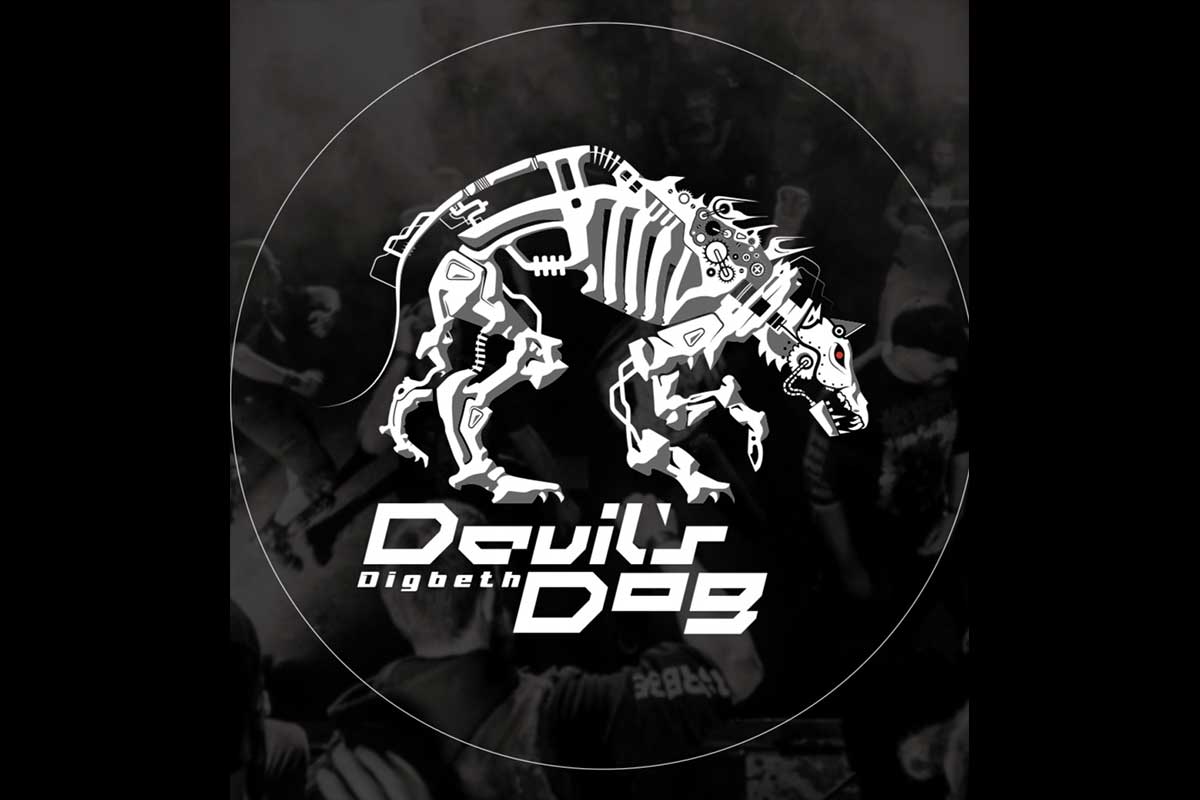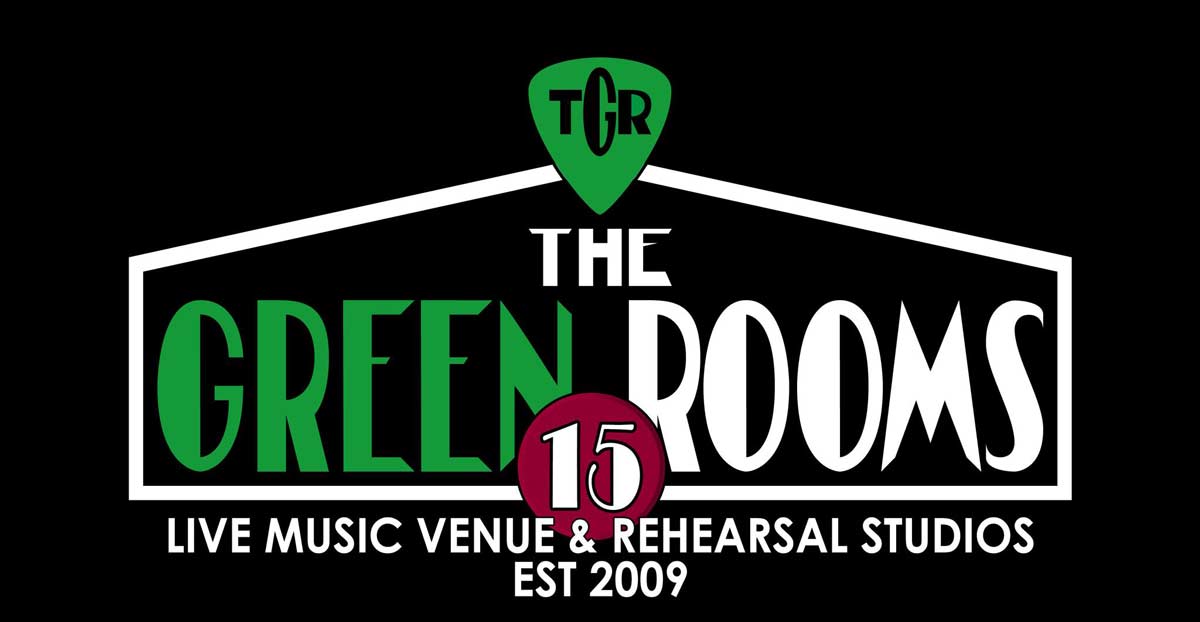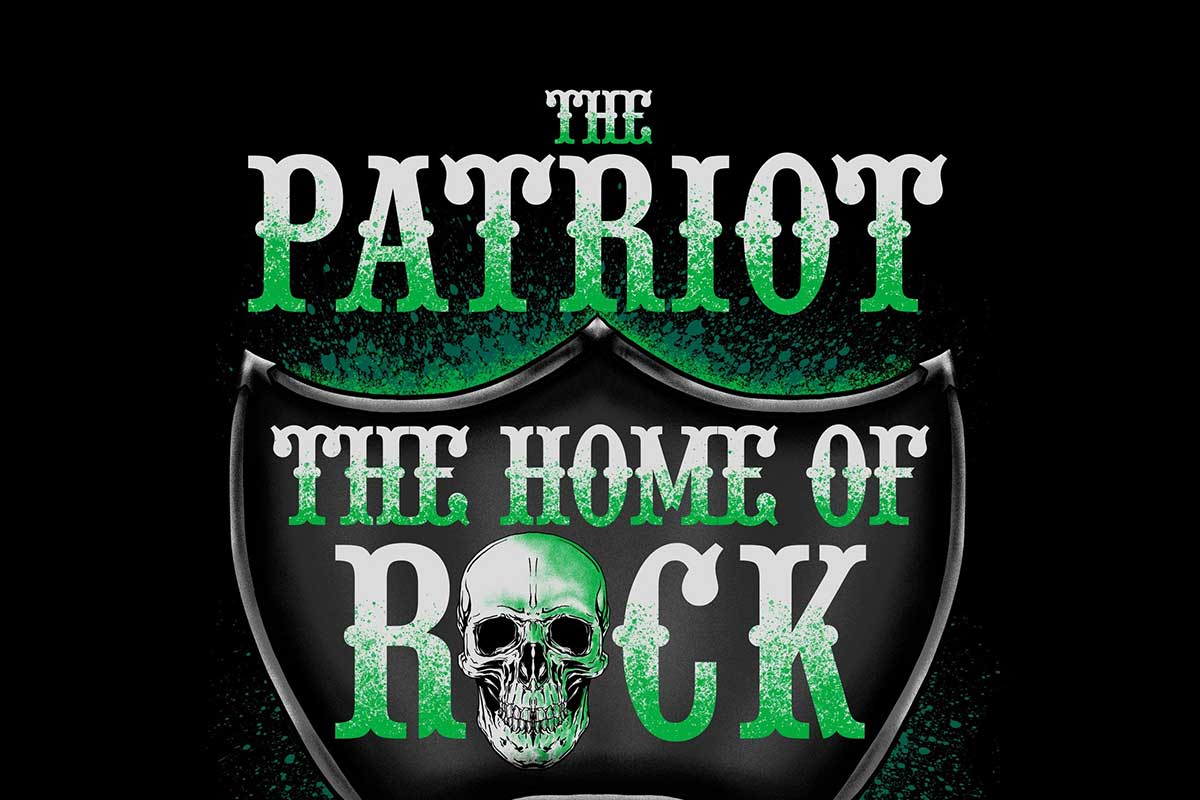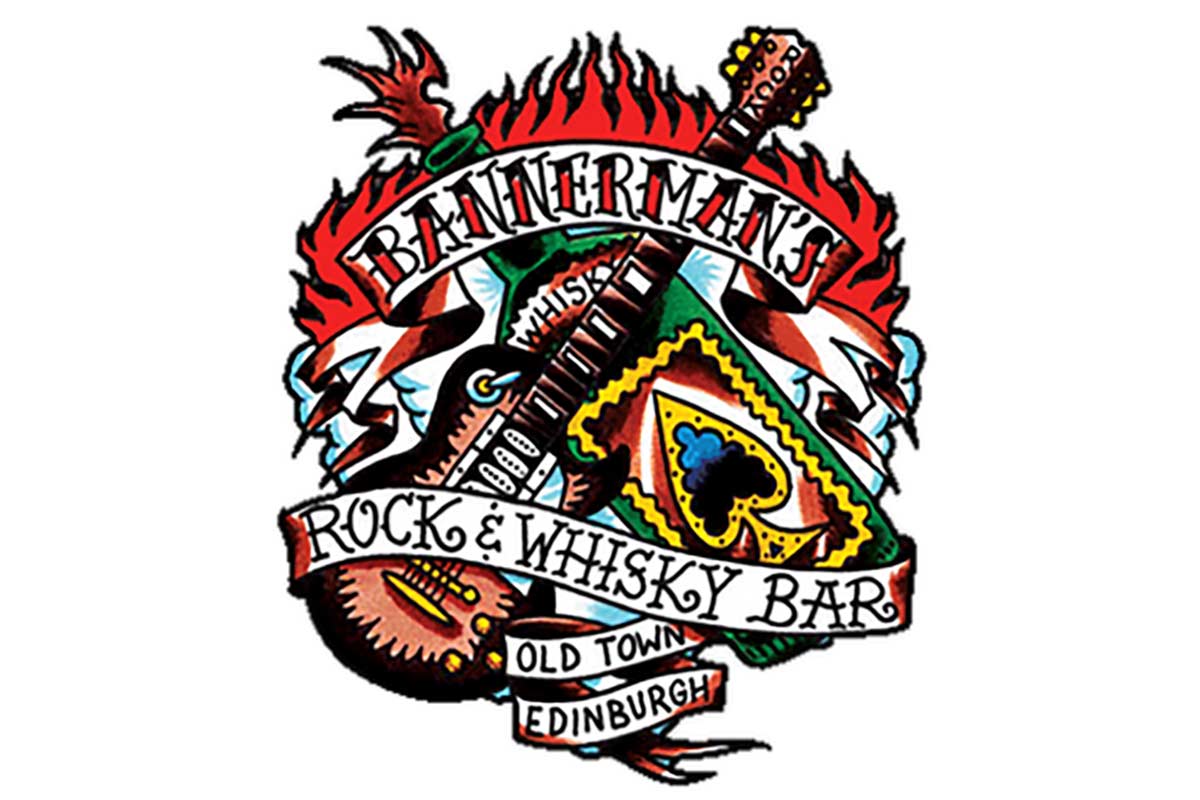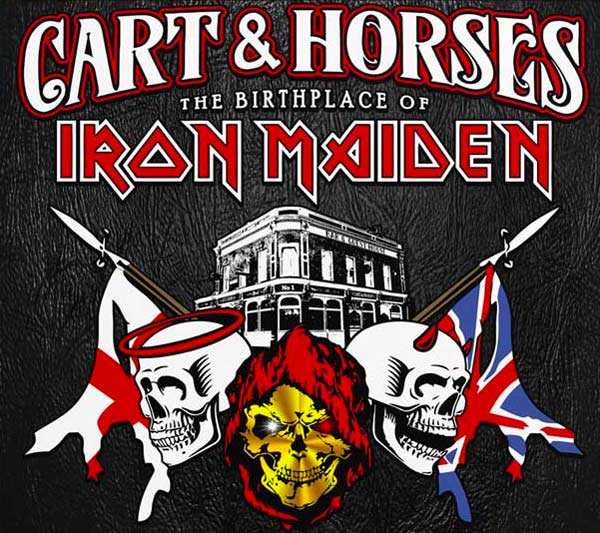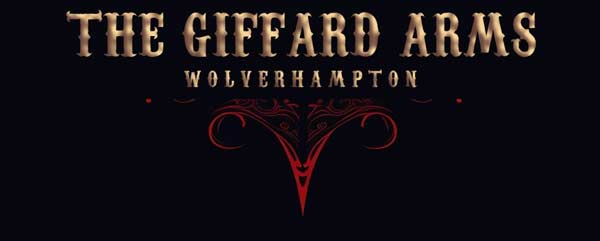Time stops for no one, but the Toby Jepson fronted Wayward Sons have just released their third album, Even Up The Score, to huge acclaim, the response from critics and fans radiant.
Wayward Sons – Even Up The Score (Frontiers Music)
Release Date: Out Now
Interview: Paul Monkhouse
The band, consisting of Jepson, guitarist Sam Wood, bass player Nic Wastell and drummer Phil Martini, have toured relentlessly since forming a seemingly scant four years ago and built up a loyal following and hugely impressive reputation for their energetic live shows and crowd-pleasing but intelligent hook-filled hard rock.
MetalTalk finds the energetic singer/songwriter in vivacious form as we look back through his career and find Jepson, “known as the guy with the long curly blonde hair,” in the musical form of his life.
“I cut my hair off recently,” Jepson told MetalTalk. “There were two factions in the fans. One was like, ‘why did you cut your hair off? It’s terrible’. There’s another faction saying, ‘oh my God, you look so much younger’. I thought, ‘well, how old did I look before?’ “I started feeling a bit awkward about having hair like that, and so it was just one of those sorts of funny decisions. I was really glad to get rid of it, and I don’t feel any different whatsoever.”
Jepson was one of many who embraced the first lockdown, and he found running cathartic. “The one thing about getting older that you can’t avoid is the inevitable nature of wear and tear,” Toby says. “Running has been very therapeutic, mentally and physically. I’ve had a back issue, largely caused by working in the building trade when I was a young lad, but also caused by holding guitars all the time.
I’ve had various nerve problems and things like that but getting into running gave me a total sense of release. I escaped from the worry and concern about the pandemic, and it gave me that sort of sense of isolation. Plus, it gave me physicality, and I started to experience my physical ailments improving. So that was a really massive benefit, and I’ve kept it up.”
Lockdown was a big reset. “I had to face the fact that I wasn’t going to be able to go and play. I had a load of shows I had to cancel, so that was a real struggle because that was my bread and butter. Contrary to popular belief, most musicians, including me, don’t own yachts, Ferraris or have huge castles. We’re all normal people trying to make ends meet. It made a big dent.”
Jepson also had a couple of production projects fall by the wayside. One, a big film project, completely disappeared. “So, I just looked at my guitar one day,” he says, “and I have got the songs I’ve written through my life, and I have got this voice in my head, so what can I do with that?”
The answer was an illuminating trip down memory lane as Toby played online shows for three months “solidly, pretty much every Thursday, and that was an amazing experience,” he says. “It made me look at my life, my music and my work in an entirely different way. I went back in time and listened to a lot of the Little Angels music, songs that I had forgotten about and relearnt them.”
It was a liberating experience. “I re-looked at the words and was able to remember where I was when I wrote the songs and things like that. So, there’s a whole gamut of things that helped me get through that period, and I think I am always at my best when I am very busy.”
This seems to have been a constant theme throughout the singer songwriter’s life. “That’s all I’ve ever done,” he says. “I’ve always had an album on the go, had some gigs, reading a book, writing, production on an album, and I like it like that. I like to have the plates spinning.”
Having the audiences turn up every Thursday massively helped. “There was the connection. Even though I couldn’t see anyone, people were sending me great messages, which was encouraging. The weird thing for me is that lockdown ended up being a positive time for me. I know people suffered, of course, lots of people suffered, but for me, I tried to make it into a positive.” Jepson wrote his first screenplay, is now working on two others and formed a small film company. The first film will be “a small film to help us gain finance” with more films to follow.
History will show that music helped a lot of people through the lockdown. “People were not being distracted by the mundanity of normal life, so what could they do?” he says. “Well, if you’re into music or you’re into the arts, into reading, that became the focus, and I think a lot of people realised how much music meant to them. I think there was a revelatory thing really because a lot of messages I was getting through my little lockdown shows were things like ‘I didn’t realise how much I missed this,’ or ‘I can’t wait for it to get back’, or ‘I didn’t realise how much music has been the soundtrack of my life’.”
The revisiting of Little Angels material, a band fused with Toby Jepson, brought back memories. “I’m very pleased with what we did with Little Angels,” Jepson says, “and it gets better the further away I get from it. When you’re in it, you don’t notice it. It’s very tough to understand. We were very young. We were young men who didn’t have a lot of life experience. We were thrust into this huge spotlight with a major label and all the things associated with that. It becomes overwhelming.
“I exploded into it, all right, let’s have it, you know, but inside, I was terrified. I didn’t deal with many situations very well, and I think if I had this head on my shoulders now, as a young person, I would have dealt with it entirely differently. I said the wrong things. I did the wrong things. There was no one to guide you. There is no rule book. People wanted another hit, write another song, write another album, get back on that stage. We don’t care if you’ve got a sore throat.
“That’s my memory of it. Certainly, the ten years after the band split up were really, really difficult. I didn’t like it. I felt it was all pretty negative, irrespective of the hits, irrespective of the fans. I’m talking about my personal experience of it, but I overcame that. When we did the reformation in 2012, that was a real cathartic experience because we reconnected as people. “A lot of the stuff that I had been carrying around as baggage on my back, I relinquished. We met as friends again, and that was really, really awesome.”
Jepson says that fans, media and people interested in the band are not interested in those stories. “They’re interested in what we achieved and what it meant to the general music world,” he says. “I’m a DJ at Planet Rock, and they only ever play two Little Angels songs, Young Gods and Kickin’ Up Dust, but we wrote three albums, and our biggest hit was Womankind, and they never play that. There is a sense of people making up their own mind of what you are, so you have to accept it.”
Little Angels are always mentioned, whether in an interview or a shout from a crowd when the Wayward Sons are performing. “It happened at Stone Dead Festival, and it’s fine. The most interesting thing about the whole lockdown thing for me was that I started to understand that the further away you get from it, the more of a shine it gathers, the more rose-tinted it is.
“I think it’s wonderful. I was very lucky, and even though the Little Angels were not the biggest band in the world, we did achieve a lot, and we were very successful, specifically in this country and Europe. It was a joy to be part of something that people daily send me messages and say, ‘oh my God, I love that song’, or ‘I proposed to my wife to Womankind’ or ‘I took my kids to see their first-ever concert when you got back together in 2012’.
“Ultimately, what it comes down to being in a band is not about sex, drugs and rock’ n’ roll. It’s actually about the relationships and how you use each other’s energy to create something artistic. When those things become fractured, it’s incredibly hurtful, and I think at the time, none of us knew why. It was just circumstances.”
Drummer Michael Lee passed away in 2008, and Jepson, Plunkett and the Dickinson brothers met at the crematorium to bury him. “We all went to the wake afterwards in a pub in Darlington, and we all looked at each other and asked why we have wasted this last 14 years? Why haven’t we been talking? We were looking at each other, asking do you remember why we argued? No? Okay. Another pint?”
It was particularly striking as Jepson had known Mark Plunkett since he was eight. “To have that 14-year period between was absolutely nuts. There was no reason for it. Why, because we were in a band?”
After the Little Angels split, Jepson did not want to make music, “I fell out of love with it because I was heartbroken.” He made his first solo record, Toby And The Whole Truth, then moved from Scarborough to Surrey to regroup and try and figure out what to do. “I’m proud of that record,” Jepson says. “I’m very, very pleased with what that record did in artistic terms, but in a lot of ways, it was probably the wrong thing to do. It was just too soon, and I was not in a great place, so it came out as a very angry sort of spitting and snarling record. It knocked me off my perch a bit, really.”
Toby started getting back on the music horse in 2002. He worked in the film business for a couple of years and was then offered a music publishing deal. “I grasped it with both hands,” he says. “I had to do this because if I didn’t, I was going to regret it.” He then spent quite a bit of time as a solo artist, touring, making records at a low level, “because I didn’t have any money and I was just doing it on my terms.”
He decided not to pursue any major record label deals or work with the same people as before. “I wanted a totally fresh start. I wanted to be in control of it because I realised I had been so out of control with Little Angels where none of the decisions were mine or ours. It was other people’s, so that was a big, big learning curve.”
He then became involved in other bands. He says Fastway was a launchpad. Gun introduced him to new people and gave him a fresh perspective, while Dio’s Disciples was “hugely interesting, hugely immersive,” and caused itchy feet. The Disciples had many more shows booked and wanted Jepson to commit. “With my heart in my mouth, I said, I can’t do it because I have to find my way now.”
That opportunity happened when Frontiers came calling. “I’ve got such respect for them,” Jepson says, “because they said to me, ‘we won’t interfere. We’ll give you the money to make your records, go away and make them how you want them to be made’. No one’s ever said that to me before, so I’ve got enormous respect for Serafino and Mario and all the guys down there.”
Wayward Sons released Even Up The Score on 8 October 2021. “I think it’s the best record I’ve ever been involved with,” Toby says. “It’s the best set of songs I’ve ever written. It took some doing. Making records is really tough. It’s really difficult. I’ve made a lot of them, and it doesn’t get any easier. But what I have learned over the years is you’ve got to let it happen, and the more you try and force it, the worse it gets, the less authentic it is and the less convincing it is.”
When Wayward Sons went to record the second album, The Truth Ain’t What It Used To Be, Toby took fifty-six songs along. “It was a very much an experiment. We took each of the song ideas, and we worked on them up to a point where it was either on the A list or it went on the B list. We ended up recording thirty-two songs, and the whole idea of that was to do two albums back-to-back.”
While lockdown meant that the band could not promote The Truth, Toby took the opportunity to revisit this unreleased material. “It was a revelation,” Toby says, with songs coming to light that he’d forgotten about. “We were feverishly emailing each other, and I was doing quick bounces and quick mixes to the guys. We’ve had all these songs. We can make the third album. Let’s get on with it.”
Faith In Fools is one track that was part of the unused set. The song was drafted after ten at night on that last day of recording ‘The Truth…’ “I can remember looking around the live room. Sam’s eyes were hanging out of his head, and his fingers were bleeding. I remember Phil being absolutely into it, and he did this amazing drum track. Sam was noodling about, and no one really knew what was going on, but Phil and I essentially worked out the arrangement. We put the track down, and we forgot about it, and it just got lost. I got the drive back and pressed play. I had forgotten all about this one. It was killer. We had to finish this.”
That process was invigorating. “It became really exciting again,” Jepson states. “Because there was no massive focus and pressure on it, we could turn it into something that was beyond itself. That would not have happened if we had been in the studio for that intense two or three week period that you would normally have. We had almost a whole year to deal with this stuff.”
Lockdown provided a chance to reinterpret some of those ideas. “It was a chance for me to write some words, really look at the melodies, talk to Sam about the guitar parts.” The chance to try things out and work together.
“Again, it was a positive result of the sadness of what’s happened to the world over the last 16 months.”
The result is the best Wayward Sons album so far. The reviews have been excellent, and there is a buzz about the band. Does critical acclaim matter to Toby? “I’d be lying if I said I didn’t want people to love it,” Jepson says. “You are hoping for great reviews, but I find it difficult to answer these questions. We had quite a weird, strange relationship with Little Angels and the press. A lot of the rock press didn’t like the band. They thought we were irrelevant at the beginning of the band’s career. Mainly, I think, because we were not part of anything.
“We came out of North Yorkshire making this kind of pop-orientated rock music that, to the Kerrangs of this world, was an anathema. We were doing it as well as Bon Jovi, and we weren’t as heavy as Metallica, so there was this strange middle ground.
“Bruce is an incredible guitar player, probably one of the greatest guitar players of his generation frankly, and we had Michael Lee in the band at one point, one of the greatest drummers of his generation. No one could deny that there’s musicality going on, but the press went out of their way a lot of the time to take the piss and not embrace us in the way that they embraced other bands that were contemporaries of ours, and it really irked us.
“You want people to like what you’re doing, and it’s really important to you when you’re young, so it used to frustrate the hell out of us. Even though we used to get good live reviews, there was a lot of mickey-taking and where one of our contemporaries would get a four-page feature in Kerrang, we would get half a page, yet we had something in the charts.
“We used to get frustrated about that. But I can remember the moment that I relinquished that problem was when we sold out Hammersmith Odeon. We put it on sale, and I can remember my manager at the time saying, ‘everyone is laughing at us for chancing our arm with this because they think we’re never going to sell the tickets.’ We sold the whole tour out in about a week.
“So everything changed. All of their attitudes changed. All of a sudden, they wanted to put us on the front cover of the magazines. They wanted to interview us. I thought to myself, you know what, we’ve done that without them. None of their involvement has had anything to do with that. The band’s success is because our fans have made us successful. I just thought, ‘fuck you’. It was actually a very, very liberating feeling, to be honest.
“I overcame that as I got older and I started to realise that there were some good people and a lot of people that I got to know, journalists, I’m still very, very good friends with. Some had the best of intentions. It was partially to do with the time because rock was really big, and everyone wanted to be in a rock band.
Of course, that’s changed now. Most of the people that I really appreciate, like yourself, are people that are music fans first. MetalTalk is more than willing to look at each project and band in a very objective fashion.
“Whereas, something like Kerrang, back in the day, was all about the fashion. Journalists thought they were bigger stars than the bands. You had photographers like Ross Halfin and journalists like Malcolm Dome, who acted as if they were gods like they were making careers.
“I’m sorry to say they didn’t. They didn’t make careers. Bands make their own careers, so that was a relationship I found very difficult. These days, I feel less and less of a need to be validated because I think I’ve been in this game for so long that I don’t feel I’ve got much more to prove. I just want to make some good music, and I really hope some people like it, and if they don’t, then I can’t control that. It’s not up to me. All I can do is the best I possibly can.
“I am sat here in my studio right now, and I can honestly say to you, 100%, I cannot do any better than I’m doing right now. I have pulled my heart out to do this. If it doesn’t float somebody’s boat, then what can I do about that?”
Given the reaction to the new album, it seems like Jepson’s only worry will come by trying to top this career-best.
That’s certainly a challenge he’s going to rise to, though, the polymathic musician heading off to embrace the next task on an ever-growing, ever-changing list, his talent burning bright.
This interview first appeared in the November MetalTalk magazine, which you can read for free.



